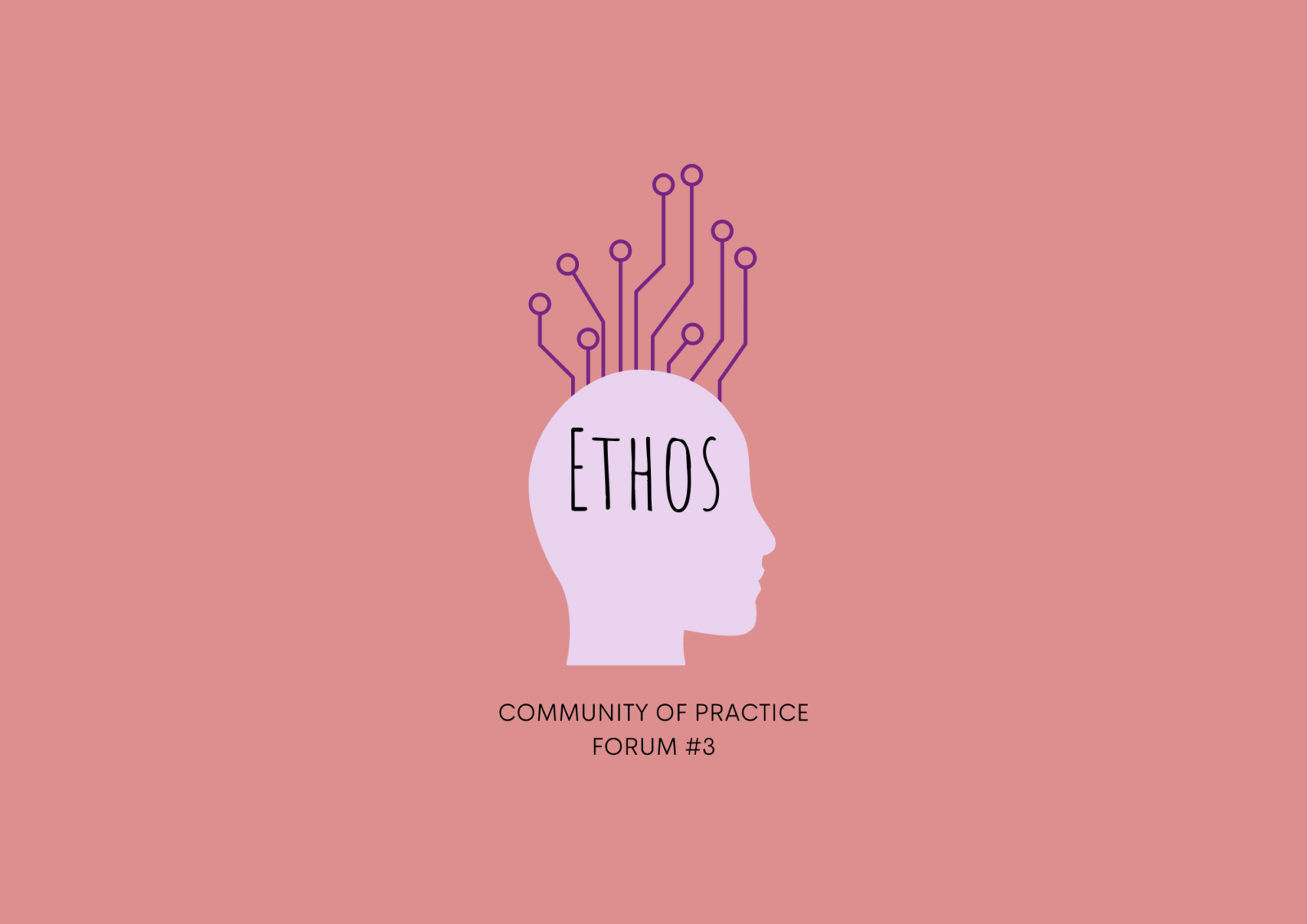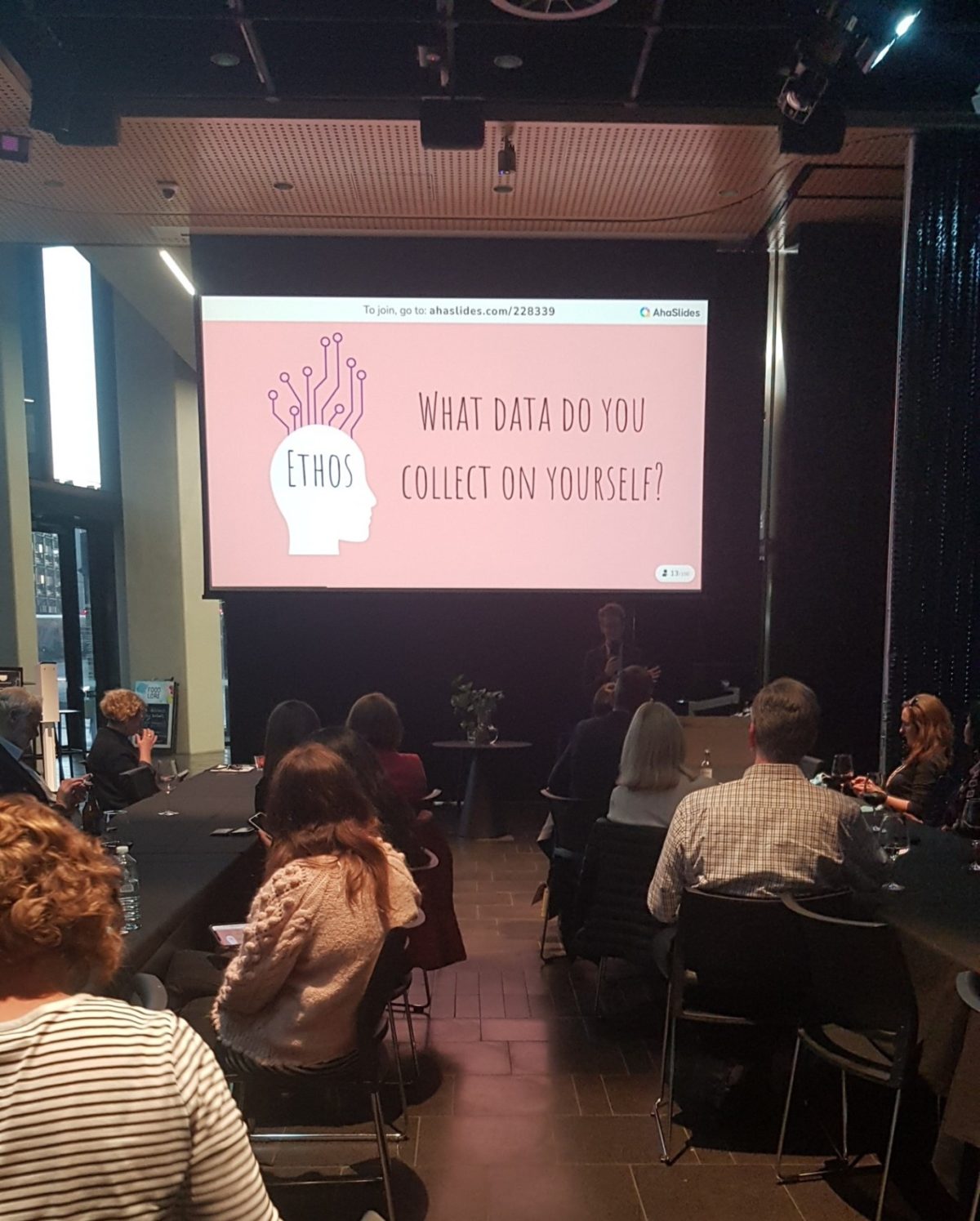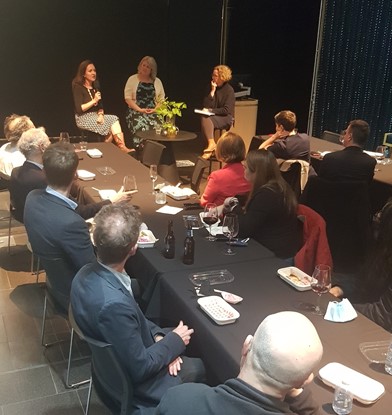Posted 8 Oct

Ethos: The ethics of smart devices
MOD. hosted its September Ethos Community of Practice, an endeavour that looks at the ethics of technology and research – in this case the ethics of smart devices. It aims to foster a culture of ethical questioning amongst researchers and the public.
This forum looked at smart devices as a starting point to explore future-focused ethical questions around their impact on social issues, research, and technological development. Matthew Wright-Simon from Ecocreative began the evening with a light-hearted interrogative activity exploring the health data our smartphones track – such as steps and hours slept – and what our reactions are to this data tracking. Participants then considered how these ethical questions could broadly be applied to their work and lives, aided by a panel discussion between Dr. Kristin Alford (Director of MOD.), Professor Carol Maher (UniSA Allied Health & Human Performance) and Dr. Kirsten Wahlstrom (UniSA STEM).

We considered the concept of gamification and how it might supplement the health benefits of the self-monitoring and data-collecting aspects of smart devices. Gamification is “the idea of taking principles that work in video games and applying them to non-video game situations”, says Carol. She was involved in a study that added gamification aspects to a physical activity app to see what effect it may have on users’ engagement with physical activity.
The first of three groups had the gamified version of the app, with features including unlockable levels, virtual rewards and gifts, and leader boards that enabled users to see where they ranked in certain physical activities. The second group had a “cut-back version of the app that [had] self-monitoring features, but no gamification”. The final group were on a ‘waiting list’ and were going about their lives without the app. They found that those with the gamification version used the app for longer and more often than those who only had the self-monitoring version. Interestingly, there was some inconclusive findings that the gamification seemed to appeal to disadvantaged men, which Carol noted is a group that her researchers find “very hard to reach”. Overall, using health data tracking and gamification in smart devices help to make physical activity more appealing or even compulsive.
Some people value their privacy very highly. Consequently, they try to protect data from organisations with VPNs, ad-blockers, and private browsers. Kristin noted that others are happy to share non-identifying data if they’re “getting value for it”. For instance, this value may be knowing that their heart health is good for their age. We then discussed the persistence and permanence of data once it is in the cloud. Collecting, keeping and sharing years of data on oneself is not as strange as it seemed a decade ago. Now there is almost a compulsion to continue the “unbroken link” of personal data collection.
One participant shared their experience with “profoundly personal” and “precious” data. This was a voice recording of one of the final conversations they had with their dad. The recording is in the cloud and has migrated from device to device. This enables them to remember and feel close to him when listening to it. Having this data permanently in existence is far more important to them than any privacy concerns around organisations accessing it.

Are smart devices are simply a tool we use to take responsibility for certain outcomes (e.g., health)? Alternatively, are the compulsive interactions we have with them “ceding (our) autonomy” to the smart device? One participant referenced the iWatch’s gamification exercise feature. It has three rings that will close as the wearer does more exercise. They said they “get a bit stressed” if they haven’t closed the rings at the end of the day. This conjured up images of a “puppet master” smart device that uses our addictions and compulsions to control our actions.
We discussed the need to be aware of “the setup that you create in your life” with smart devices. For example, we often keep our smartphones by our bed at night “for really low probability events” (e.g., emergencies). However, this practice has been linked to pervasive detrimental effects on quality of sleep and mental health. Interestingly, one participant deliberately chooses not to have email on their smartphone to avoid compulsively checking work emails and to separate work and home life. Accordingly, an individual can take some measure of control over their relationships with smart devices by being aware of the addictive effects of some apps and making very conscious decisions about which ones they download.
The Ethos Community of Practice is made possible with funding through the Deputy Vice-Chancellor of Research and Enterprise. The previous Ethos forum investigated the ethics of plant-based milks. We hold Ethos events regularly at MOD. Check out our events page for more details!
Samuel Wearne was the rapporteur for this forum and is a moderator at MOD.